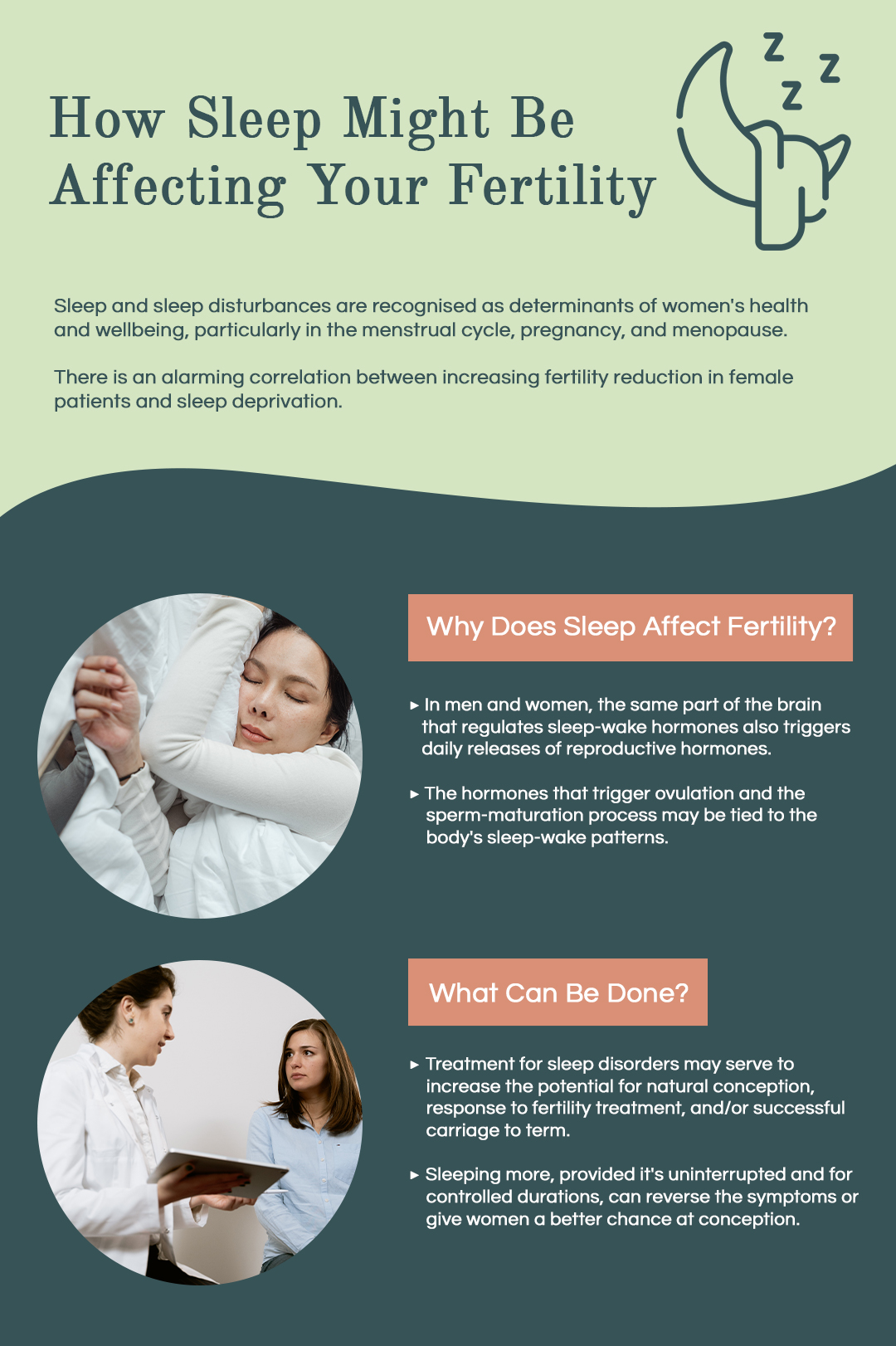A lot of research is currently being carried out to help diagnose fertility problems in women. One outcome shows that sleep may be a key factor in one’s ability to conceive, positively respond to fertility treatment and successfully carry a baby to term.
It’s estimated that a shocking 7.4 million Australians went without adequate sleep in the 2016-17 financial year. This, in turn, affected their concentration and ability to function normally.
So why does a lack of sleep affect fertility? In men and women alike, it was found that the part of the brain which regulates the sleep-wake hormones also releases reproductive hormones. In addition, hormones that trigger ovulation and sperm maturation are also linked to the body’s sleep-wake pattern.
Luckily, it has been proven that with enough uninterrupted sleep, the side effects of a lack of sleep can be reversed. To find out more on this fascinating subject, click here.


